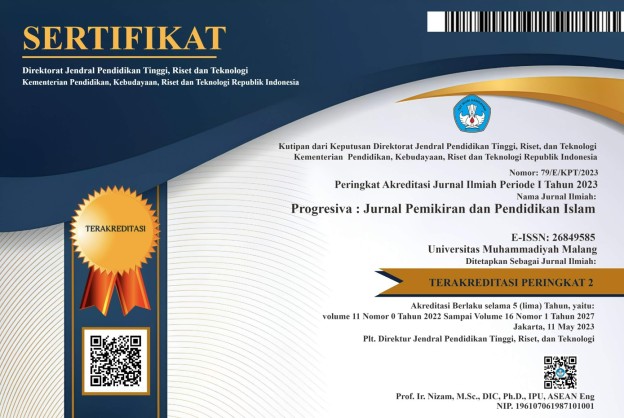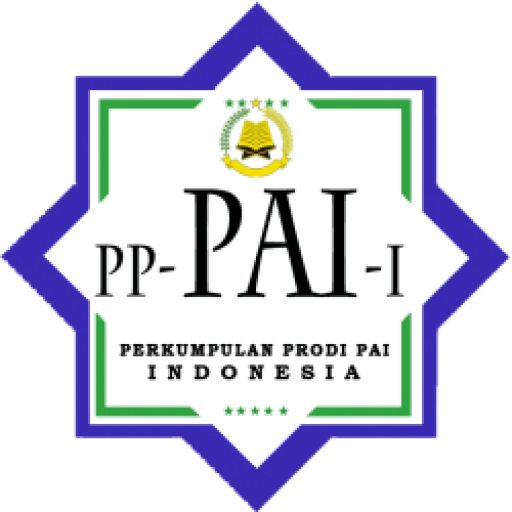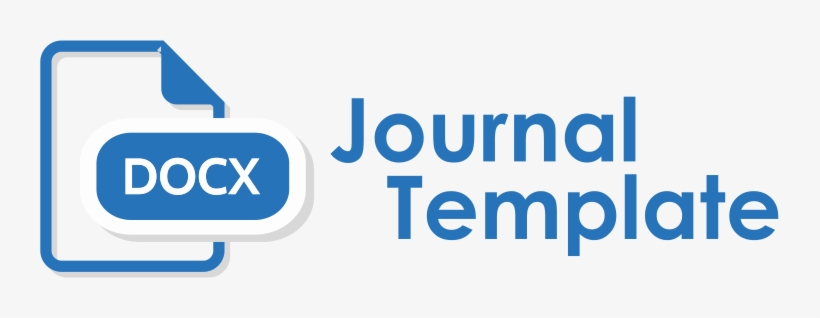Analyzing the Practice of Critical Thinking Skills for Islamic Education Students in the International Campus
DOI:
https://doi.org/10.22219/progresiva.v12i02.29520Keywords:
Critical ThinkingAbstract
Critical thinking is one of the most important goals of any educational system. Previous research has indicated that Malaysian educational institutions are still unable to meet the goals of instructional pedagogy in the classroom, particularly in terms of improving critical thinking abilities. The purpose of this study is to examine the practice of critical thinking skills among undergraduate students from the perspective of faculty members. This study is qualitative in nature since it focuses on individuals’ experiences and impressions of a specific programs from their own viewpoints. Data was gathered through interviews with faculty members who teach Islamic Education undergraduate students at the Kulliyyah of Education (KOED), International Islamic University Malaysia (IIUM). The findings of the study revealed that practicing critical thinking abilities improved the students’ learning experiences. According to the informants’ response, a critical thinking skill is the student's ability to gather knowledge and explain his or her thoughts in order to solve difficulties. Similarly, students may exercise critical thinking abilities by developing higher-order thinking skills, problem-solving skills, reflection skills, and synthesis skills. Moreover, the study recommends further investigations on the practice of critical thinking skills not only for undergraduate students but also for other postgraduate students, particularly at the Kulliyyah of Education (KOED), IIUM. It also suggests that management educational institutions offer intensive programs to help students strengthen their critical thinking abilities.
Downloads
References
Afandi, I. (2012). Membangun Pendidikan Nasional: Masa Depan untuk menyongsing Tahun 2035. Bandung: UPI Press.
Abduhzen, M.(2018). “Kompetensi Kepribadian Guru”, dalam Harian Kompas, 19-3.
Abdullah, A. K. (2010). Strengthening critical thinking skills among Muslim students. Islam and Civilizational Renewal (ICR), 1(4).
Abosalem, Y. (2016). Assessment techniques and students’ higher-order thinking skills. International Journal of Secondary Education, 4(1), 1-11.
Alazzi, K. F. (2008). Teachers' perceptions of critical thinking: A study of Jordanian secondary school social studies teachers. Social Studies, 99(6), 243-248.
Banfield, G., & Cayago-Gicain, M. S. (2006). Qualitative approaches to educational evaluation: A regional conference. International Education Journal, 7 (4), pp 510–513.
Changwong, K., Sukkamart, A., & Sisan, B. (2018). Critical thinking skill development: Analysis of a new learning management model for Thai high schools. Journal of International Studies, 11(2).
Conklin, J. (2005). A taxonomy for learning, teaching, and assessing: A revision of Bloom’s taxonomy of educational objectives complete edition.
Facione, P. A. (1990). Critical thinking: A statement of expert consensus for purposes of educational assessment and instruction. Millbrae: California Academic Press.
Facione, P. A., & Facione, N. C. (2013). Critical thinking for life: Valuing, measuring, and training critical thinking in all its forms. Inquiry: Critical thinking across the disciplines, 28(1), 5-25.
Fisher, A. (2011). Critical thinking: An introduction. Cambridge university press.
Gawel, J. E., Jeddi, S., Atefi, Z., Jalali, M., Poureisa, A., Haghi, H., Szwacka- Mokrzycka, J. (2013). Author ™ s personal copy of Ready for a paradigm shift? Part 2: Introducing qualitative research methodologies and methods Author's personal copy. Acta Sci. Pol. Oeconomia 14 (3), 3 (3), pp 149-156.
Guest, K. (2000). Introducing critical thinking to non-standard entry students: The use of a catalyst to spark debate. Teaching in Higher Education, Vol 5, no 289-299.
Jamal Badi & Mustapha Tajdin (2005). Creative thinking: An Islamic perspective. Kuala Lumpur: IIUM Press.
Johnson, E. (2006). Contextual Teaching and Learning. Bandung: MLC.
Lauren B. Resnick. (2000). Education And Learning To Think. Nation. Washington: National Academy Press.
McDonald, S. D. (2017). Enhanced Critical Thinking Skills through Problem-Solving Games in Secondary Schools. Interdisciplinary Journal of E-Learning & Learning Objects, 13.
Noer, Sri Hastuti 2010 Peningkatan Kemampuan Berpikir Kritis, Kreatif, dan Reflektif (K2R) Matematis Siswa SMP Melalui Pembelajaran Berbasis Masalah (Bandung: Unpublished dissertation of UPI).
Petress, K. (2005). Questions and answers: The substance of knowledge and relationship. College Student Journal, 374-376.
Rafliyanto, M., & Mukhlis, F. (2023). Optimizing Learning: Applying the Pomodoro Technique in Islamic Education. El-Tarbawi, 16(1), 153–176. https://doi.org/10.20885/tarbawi.vol16.iss1.art6
Ramos, J. L. S., Dolipas, B. B., & Villamor, B. B. (2013). Higher Order Thinking Skills and Academic Performance in Physics of College Students : : A Regression Analysis. International Journal of Innovative Interdisciplinary Research, (4), 48–60. https://doi.org/ISSN 1839‐ 9053.
Rosnani, H. & Suhailah, H. (2003). The teaching of thinking in Malaysia. Kuala Lumpur: Research Centre IIUM.
Setiawan, A., Malik, A., Suhandi, A., & Permanasari, A. (2018). Effect of higher order thinking laboratory on the improvement of critical and creative thinking skills. In IOP Conference Series: Materials Science and Engineering (Vol. 306, No. 1, p. 012008). IOP Publishing.
Sirat, M. Bin (2010) 'Strategic planning directions of Malaysia's higher education: University autonomy in the midst of political uncertainties', Higher education, 59(4), pp. 461–473.
Traore, H. N., & Meyer, D. (2001). Comparing qualitative and quantitative spectroscopic techniques for the detection of the effect of direct iron loading of mammalian cell cultures. Methods in cell science, 23(4), 175-184.
Winarto, Y. T., & Suhardiyanto, T. (2016). Karya Tulis Ilmiah Sosial: Menyiapkan, Menulis, dan Mencermatinya (E. M. Choesin (ed.)). Pustaka Obor Indonesia.
Downloads
Published
How to Cite
Issue
Section
License
Copyright (c) 2024 Pandang Margatama; Tahraoui Ramdane, Muhammad Wildan Shohib

This work is licensed under a Creative Commons Attribution-ShareAlike 4.0 International License.


















